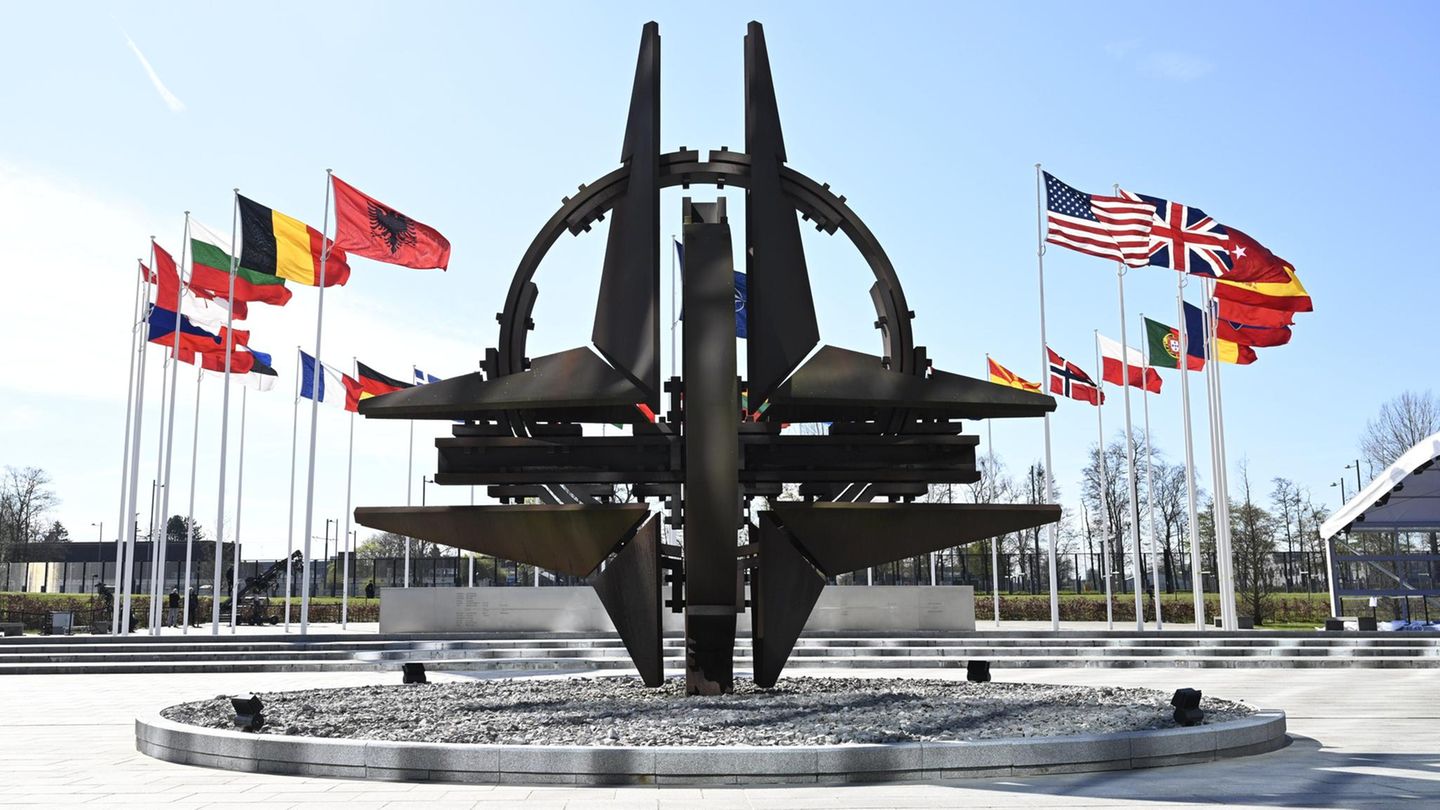Guest article
NATO is turning 75. The war in Ukraine has become a serious situation for the defense alliance. But politicians are damaging NATO with bizarre communication. An interjection from the perspective of brand research.
The brand concept has had a meteoric rise. It has quickly expanded from product communication to other areas such as services or nations (“nation brands”). The brand concept is also used in politics. Brands condense performance promises into a trademark that stands for certain values. In the best case, the brand-leading company presents its product and convinces with its performance.
Against this background, the political communication towards NATO is a bizarre spectacle – especially from the German perspective.

To person
Jan Liesborn in 1970, is an expert in PR and communications management. Since 2013 he has been teaching as a professor of business administration, particularly corporate communications and marketing, at the University of Dortmund.
What NATO’s brand promise is
NATO is a defense alliance of 32 countries. The promise of the NATO brand is to defend its members in the event of an attack. This is not just limited to military performance. NATO is also a sign of risk reduction for its member states: if a NATO country is attacked, everyone is ready to defend together. This gives the NATO brand the strength of a family brand, which is reflected in the individual brands of the armed forces of its member states. When a defense situation arises and a customer knocks on the door, demand is there.
How Ukraine became a test market for the NATO brand
The NATO brand is under acute pressure with Russia’s attack on Ukraine and the repeated threat of nuclear strikes. A customer is literally threatening to place an order. Ukraine is therefore an unwanted test market for NATO. In a democracy, dealing with such military aggression can, should and must be discussed publicly. The political question of whether and to what extent NATO will intervene was answered quickly and clearly around two years ago. It is helping Ukraine. The NATO brand is now ready to deliver at all times. From the customer’s perspective, Ukraine’s successes (or failures) are decisive for whether they increase their demand.
How politics is demolishing and dismantling the NATO brand
Against this background, it is all the more bizarre that politicians in Berlin are not only constantly discussing NATO’s performance facets and production methods, but are also arguing about them in detail. The NATO brand cannot convince either nationally or internationally if the delivery of the product is viewed critically by its own management on a weekly basis.
Such discussions are harmful in several ways: They provide insights into the (weak) performance and organization of defense capabilities, reveal leadership disputes within and between NATO partners, and demotivate the troops and their officers. Anyone who positions a strong brand would never think of making production secrets public. It is therefore not a public question how NATO organizes its striking power or even operations.
Neither votes on questions of organizational issues of missions nor questions of equipment belong in public debate. Discussions about which nation contributes which equipment to NATO’s performance also have no place in public. If a national government has reservations about showing a presence in a crisis zone or supplying certain weapons, this does not belong in customer communications.
From a brand perspective, this is not just a publication of production secrets, but an active dismantling of the NATO brand. When more than 100 participants attend secret special sessions of the Bundestag’s Defense Committee, only to be surprised by leaks afterwards, this is an example of living irresponsibility. In this way, brand management in this country provides deep insights into the chaos of an almost unwilling customer and delivery management.
What is the role of politics, citizens and the media in NATO
Whether it is a product brand or a political brand, they present themselves in their entirety. Citizens and politicians are not the customers of the NATO brand. Rather, they are the employees and responsible managers of their defense brand. Politicians, citizens and the media must learn a new role.
If the media, citizens and politicians usually comment critically on state institutions in a democracy as part of social control, they now have to deliver themselves. Together with product management, i.e. the military, they have to ensure that NATO always presents the image of “defense readiness” convincingly. “One voice to the customer” is one of the important basic rules of brand communication. In fact, those in positions of responsibility in Germany apparently only occasionally remember that they always act and speak in coordination with NATO partners.
Democracy includes not only the right to express one’s opinion, but also the duty to put the mandates into action. Democracy grants power and thus temporary offices. Mandates must be able to carry out their mandate. If they are to work credibly and with motivation, they must not be bombarded at all times with wars of opinion from their own management behind the front lines. If there is a need for discussion, it must be done behind closed doors that are secure from eavesdropping. This is the only way a defense alliance can be seen as a serious institution.
Conclusion: How politics can learn from brand management
The idea of the NATO brand is more important now than it has been for a long time. If you look at two years of NATO’s test market in Ukraine, there is no visible learning curve: from the debate about the provision of helmets at the beginning of the attack to the Taurus cruise missile debate today. No brand company would think of publicly discussing the performance of its brands or even giving a detailed look at production processes. The management responsible is still not aware of its role. The spirit of democracy must switch from argument to implementation mode: in defense as well as in many other areas of politics.
Source: Stern
I have been working in the news industry for over 6 years, first as a reporter and now as an editor. I have covered politics extensively, and my work has appeared in major newspapers and online news outlets around the world. In addition to my writing, I also contribute regularly to 24 Hours World.




